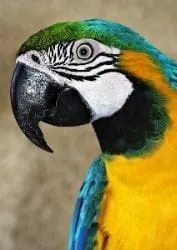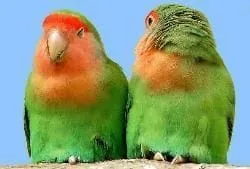Click on the links below to learn about important information regarding our avian patients, or visit our Veterinary Library for a more extensive list.
- Bird Husbandry
- Bird Nutrition
- Recognizing Illness in Pet Birds
The majority of our avian and exotic patients are seen by Dr. Marder and Dr. May. They are available Monday - Saturday. Please call (516) 621-4010 to schedule an appointment for a physical examination, beak, nail and wing trim or routine diagnostic tests for your bird or exotic pet.

ASPCA Animal Poison Control Center - Pet Poison Safety Tips For Bird Owners

The following common hosehold items can be toxic to birds
1. Be aware of the plants you have in your home. The ingestion of azalea, oleander, yew or rhododendron could produce life-threatening clinical problems.
2. Store all cleaners, pesticides, prescription and over-the-counter medications out of your bird's reach.
- Some cleaning agents may cause mild stomach upset, but others can cause severe burns of the tongue, mouth and crop.
- Most pesticide baits contain ingredients such as grains or sugars, which can attract your bird. When using rat and mouse bait or ant or roach traps, place the products in areas that are inaccessible to your bird.
- Never give your bird medication unless you are directed to do so by a veterinarian. Many medications that are safe for humans can be potentially deadly for birds, even in small amounts. This includes painkillers, cold medicines, anti-cancer medications, antidepressants, vitamins and diet pills.

4. Foreign objects - mothballs, potpourri oils, pennies (minted after 1983), homemade play dough, fabric softener sheets, automatic dishwashing detergent and batteries could cause problems if ingested by birds.
5. Birds are sensitive to inhalants and they typically require longer periods of time away from treated areas. Make sure your bird does not enter areas in which insecticidal foggers or house sprays have been applied for the period of time indicated on the label. Contact the manufacturer for recommendations if the label information is not specific. Some common sources for fumes include aerosol products such as hairsprays, perfumes and air fresheners, insecticidal fumigants, overheated Teflon or Silverstone coated pans, automobile exhausts, tobacco or other forms of smoke, glues and paints.
If your pet bird has been exposed to any of the plants, products, or chemicals listed above please call (516) 621-4010 to schedule an evaluation today.

